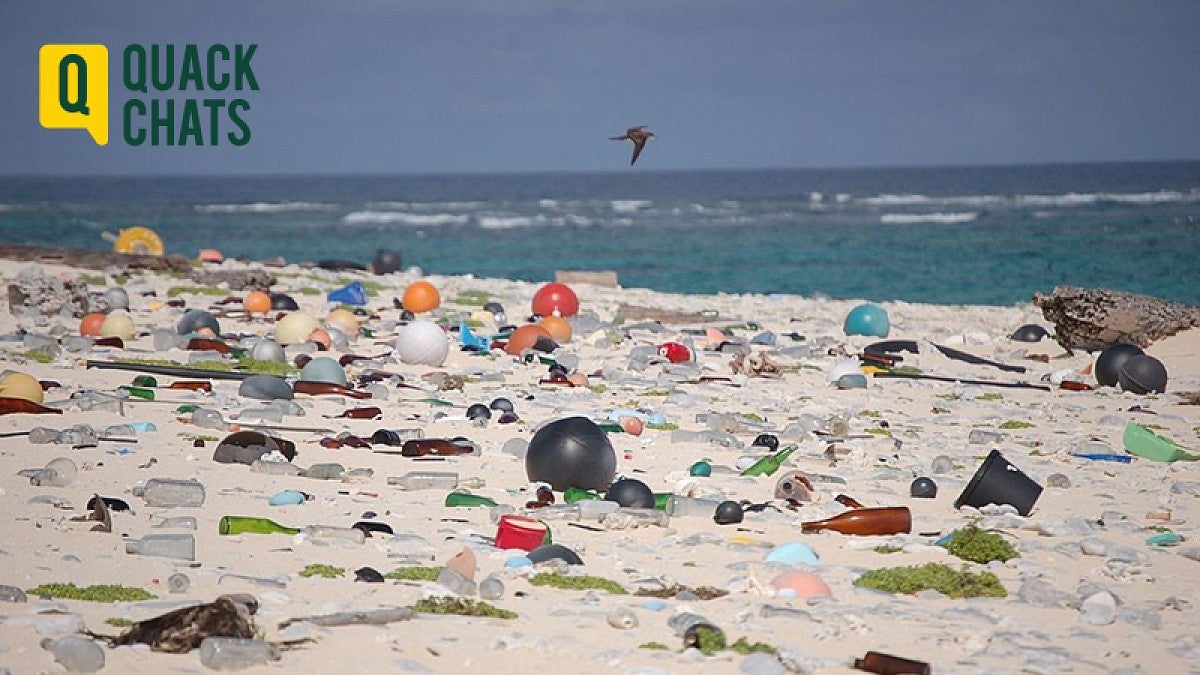Plastic on the beaches and in the oceans. It ends up in fish and sea mammals and back to humans by way of consumed seafood. Now there’s a coming pub talk on a possible solution.
Degradable plastic is a goal for a lot of today’s chemists, according to David Tyler, head of the University of Oregon’s Department of Chemistry and Biochemistry. He’ll deliver a Quack Chats pub talk about this goal Wednesday, Nov. 28, at the Downtown Athletic Club.
His talk will begin at 6 p.m. at the Ax Billy Grill & Sports Bar, on the third floor of the Downtown Athletic Club, 999 Willamette St. Admission is free. Food and drinks will be available for purchase.
“Chemists are problem-solvers,” said Tyler, whose research focuses on how chemical reactions occur. “Society has identified a problem, namely the nondegradability of plastics. There is a lot of research all over the country and around the world to solve the nondegradability problem caused by plastics being overengineered. They are not degrading.”
Many chemists want to make plastics from renewable materials so they are compostable and decay on their own or in sunlight, he said. The challenge, however, is tweaking the timing so plastics stay intact long enough to do what they are designed to do.
“Chemists can make sure that plastics no longer end up in the middle of the ocean,” Tyler said. “We want plastic to degrade back into carbon dioxide and water, which is what plants use to make the starch that can be used to make degradable plastics. We’d like to have this big cycle in which CO2 makes plant material, which is then used to make plastics, and which then degrades back to CO2. On paper, this looks pretty good, but it’s not perfect yet.”
Tyler, who has been at the UO for 34 years, started college at Purdue University as a biology major, but his path was changed, he said, by a great professor in a general chemistry course. He has given numerous public talks on sustainability as seen through life-cycle assessments of products. He teaches a course on the chemistry of sustainability.
His Quack Chats talk, “The Plastics Problem and Probable Solutions,” will draw from his own research on the fundamental science on the degradation of plastics.
“I study how chemical reactions occur, basically how atoms combine with other atoms,” Tyler said. “I look at how A goes to B. If you know the reaction mechanisms, then you can tweak the reaction so it goes faster, or if it’s degrading too soon you can extend the life. If your plastic containers are degrading on the grocery store shelf, we have to adjust that timing.”
Quack Chats is a program of University Communications. For more information, see the Quack Chats section on Around the O. A general description of Quack Chats and a calendar of additional Quack Chats and associated public events also can be found on the UO’s Quack Chats website.
—By Jim Barlow, University Communications


